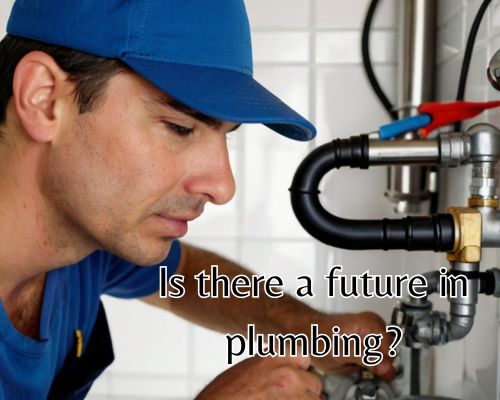
Is There a Future in Plumbing? Insights for Victoria, Australia
In an age of automation, smart technologies, and shifting labour markets, many Australians—particularly in Victoria—are asking, “Is there a future in plumbing?” The short answer is yes, but the reasons why are far more complex and insightful than most might assume. Far from being a declining trade, plumbing is evolving—merging traditional craftsmanship with emerging technologies and sustainable practices.

For residents, apprentices, and career-switchers in Victoria, Australia, plumbing not only holds a strong future but is emerging as one of the most resilient and adaptable trades in the construction and maintenance industries. Let’s get into details with Plumber Warragul.
The Current State of Plumbing in Victoria
Victoria’s construction industry is undergoing a strong rebound post-pandemic. According to the Australian Bureau of Statistics (ABS), the state is experiencing a surge in residential and commercial development, particularly in metropolitan areas such as Melbourne, Geelong, Ballarat, and Bendigo. With every new build, renovation, or infrastructure project, plumbing is not only necessary but critical.
Moreover, data from the National Skills Commission lists plumbers on the national skills shortage list, with Victoria being one of the most affected regions. Licensed plumbers are in high demand, particularly in regional areas such as Warrnambool, Shepparton, and Mildura, where housing development and aging infrastructure require constant attention.
Why the Plumbing Industry is Future-Proof
1. Sustainability and Green Technologies
Victoria has been a frontrunner in Australia’s transition to more sustainable practices, especially in water conservation and energy-efficient infrastructure. Plumbers in the region are now tasked with installing and maintaining rainwater harvesting systems, greywater recycling units, solar hot water systems, and high-efficiency fixtures.
The state government’s Water for Victoria plan encourages smart water use in homes and commercial buildings—creating new opportunities for skilled plumbers who understand sustainable systems. With climate change concerns growing, plumbers are no longer just tradespeople; they are essential environmental stewards.
2. Smart Homes and Digital Integration
The rise of smart homes in suburbs like Brighton, Mornington, and Point Cook is creating demand for tech-savvy plumbers. From Wi-Fi-enabled leak detectors to programmable irrigation and water temperature regulators, the integration of Internet of Things (IoT) devices means plumbing is becoming increasingly digitised.
Plumbers trained in smart systems and digital diagnostics are carving a niche in the Victorian housing market, especially in premium suburbs and luxury developments.
Long-Term Career Stability
Despite the popularity of university degrees and white-collar jobs, there’s a growing recognition of the job security and high earning potential in trades. Plumbing, in particular, offers a well-paying, physically engaging, and in-demand career path that is relatively insulated from economic downturns.
In Victoria, apprentice plumbers can earn between $20 to $25 per hour, with qualified and licensed plumbers earning anywhere from $45 to $70+ per hour, depending on specialization, experience, and location. Those who branch into areas like gas fitting, hydraulic design, or run their own businesses can see annual incomes surpassing $120,000 AUD.
Visit Plumber Warragul for more.
Government Investment and Public Infrastructure
Major infrastructure projects like Melbourne’s Suburban Rail Loop, the North East Link, and ongoing public housing developments across the state are creating robust pipelines of work for trades—including plumbing. These government-led projects guarantee long-term employment and opportunities to work on large-scale systems that go beyond residential plumbing.
Additionally, Victoria’s Free TAFE for Priority Courses initiative includes the Certificate III in Plumbing. This not only lowers the barrier to entry for aspiring tradespeople but also ensures that new entrants into the field are trained to modern standards, including sustainability and safety compliance.
The Role of Plumbing in Public Health
While often underappreciated, plumbing plays a critical role in public health—a fact highlighted by the COVID-19 pandemic. Proper sanitation, water treatment, and waste disposal systems are foundational to preventing disease and ensuring hygienic living conditions.
In regional Victoria, especially in areas relying on septic systems and rainwater collection, plumbers are frontline workers in health and safety. As populations grow and urban sprawl increases, the need for plumbing infrastructure will rise accordingly.
Emerging Niches within the Plumbing Sector
Victoria’s plumbing industry is no longer just about fixing leaks or installing toilets. The trade is diversifying into high-tech and specialty niches:
- Backflow prevention testing for commercial properties
- Fire protection systems in high-rise and industrial buildings
- Stormwater system design and installation, especially in flood-prone suburbs
- Green plumbing certifications, increasingly requested by environmentally conscious developers
The AI and Automation Question: Can Plumbing Be Replaced?
There’s a valid concern in every trade about job displacement due to automation. While AI can enhance diagnostics and inventory management, the physical and adaptive nature of plumbing work makes it less susceptible to full automation. Plumbing often requires nuanced problem-solving in unpredictable environments—a skillset that AI and robots still struggle to replicate.
Moreover, regulatory compliance, licensing, and hands-on training create a human-first buffer that ensures plumbers will remain in demand long into the future.
Why Plumbing Appeals to the Next Generation
With many young Victorians reconsidering the university path due to student debt and limited job guarantees, trades like plumbing are regaining prestige. The ability to become a qualified professional in four years or less, combined with the freedom to run your own business, has made plumbing attractive for Gen Z and millennials.
Social media platforms like TikTok and YouTube are also playing a role in revitalising interest in trades. Influencers in Melbourne and Sydney have turned day-in-the-life content into viral showcases of what a modern plumbing career looks like—complete with autonomy, income transparency, and skill-building.
The Future Is Fluid—And That’s a Good Thing
So, is there a future in plumbing—especially in Victoria, Australia? Undoubtedly.
From government investment and sustainable innovations to increasing digital integration and reliable earnings, plumbing is evolving, not fading. In fact, it’s one of the few trades standing firm against automation, economic uncertainty, and the unpredictability of a post-pandemic workforce.
For anyone considering a career move or simply trying to gauge the outlook of the Victorian job market, plumbing represents a grounded, growth-oriented path that is both essential and full of opportunity.
Final Thoughts
Victoria’s future infrastructure, climate goals, and housing needs all hinge on having skilled, licensed, and forward-thinking plumbers at the helm. Whether you’re in metropolitan Melbourne or a fast-growing regional town like Traralgon or Wodonga, the demand is rising, the pay is strong, and the job satisfaction is real.
🔧💧 So yes—plumbing absolutely has a f

